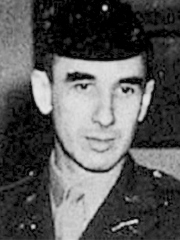Charles Louis Kades: American Lawyer and Civil Servant
Charles Louis Kades, an American lawyer and civil servant, passed away on June 18, 1996, leaving behind a legacy of service and dedication. Born on March 12, 1906, in Newburgh, USA, Kades had a remarkable career that spanned several decades.
Kades completed his education at Cornell University in 1927 and went on to graduate from Harvard Law School in 1930. He began practicing law in New York in 1931, establishing himself as a respected legal professional. In 1933, he became an advisor to Secretary of the Interior Harold L. Ickes in the Roosevelt administration, where he served for ten years during the New Deal administration.
In 1942, Kades enlisted in the military and joined the European Expeditionary Force. He played a significant role in the Normandy landings, demonstrating his bravery and commitment to his country. Following the surrender of Japan in 1945, Kades landed in Douglas MacArthur’s entourage at Atsugi. He oversaw the restoration of civil order during the early stages of the occupation.
In the same year, Kades assumed the position of Deputy Director General of the Civil Administration Office of GHQ. He headed the staff for Japan experts and military personnel and played a crucial role in drafting the new constitution, known as the MacArthur draft. This constitution included provisions such as the emperor’s role as the head of state, Japan renouncing the right to war and maintaining no military forces, and the abolition of the Japanese feudal system.
During his time in Japan, Kades faced challenges and conflicts, particularly with Major General Charles Willoughby. The occupation policy underwent a “reversal,” leading to a weakening of democratization efforts and a stalemate.
Kades returned to the United States in 1948 and resigned from public service in 1949. He resumed his legal practice in New York, benefiting greatly from the support of MacArthur. Additionally, he acted as a trustee of the MacArthur family property. In 1980, Kades retired as a lawyer but continued to leave his mark on the world.
In 1993, Kades revisited Japan and made an appearance on television, showcasing his enduring connection to the country and its people. Throughout his life, he remained dedicated to his profession and committed to public service.
Charles Louis Kades will be remembered as a remarkable individual who made significant contributions to the legal and civil service sectors. His legacy will continue to inspire future generations to strive for excellence and serve their communities with integrity and passion.
References:
– S. Or (Ed.): Kades, Charles Louis. In: Japan. An Illustrated Encyclopedia. Kodansha, 1993. ISBN 4-06-205938-X, p. 707.
What role did Charles Louis Kades play in investigating and prosecuting war criminals after World War II
To his country. Due to his expertise in civil administration, Kades was appointed as the Chief Civil Affairs Officer for the United States Army in both France and Germany during World War II.
After the war, Kades continued his work in government service. In 1945, he was appointed as the Executive Director of the War Crimes Branch in the United States Department of Justice. He played a crucial role in investigating and prosecuting war criminals, ensuring justice for the victims of the Holocaust and other atrocities.
Kades’s dedication and expertise in civil administration led to his appointment as the General Counsel for the Economic Cooperation Administration in 1948. He played a vital role in implementing the Marshall Plan, which aimed to rebuild Europe’s infrastructure and economy after the devastation of World War II.
In 1953, Kades returned to private practice, joining the law firm of Hughes Hubbard & Reed. However, his commitment to public service remained unwavering. In 1955, he was appointed as the Special Assistant to the United States Attorney General, where he focused on criminal justice reform and combating organized crime.
Kades’s remarkable career also included serving as the Deputy Director of the United States Information Agency and the Executive Secretary of the American Bar Association. He dedicated his life to public service and was a strong advocate for justice and the rule of law.
Throughout his career, Kades received numerous accolades and recognition for his contributions. In 1969, he was awarded the Distinguished Civilian Service Award, the highest honor granted by the United States Department of Defense to non-military personnel.
Charles Louis Kades’s legacy as an American lawyer and civil servant is one of service, dedication, and bravery. He played a vital role in shaping United States policy and ensuring justice for war crimes victims. His commitment to public service serves as an inspiration for future generations to prioritize the betterment of society.

“Charles Louis Kades exemplifies the true meaning of dedication and service to his country. As an accomplished lawyer and civil servant, his relentless efforts have made a significant impact in shaping the American legal system. Kades’ commitment to justice and public service is truly inspiring.”